SEO
5 Best SEO Certifications in 2023
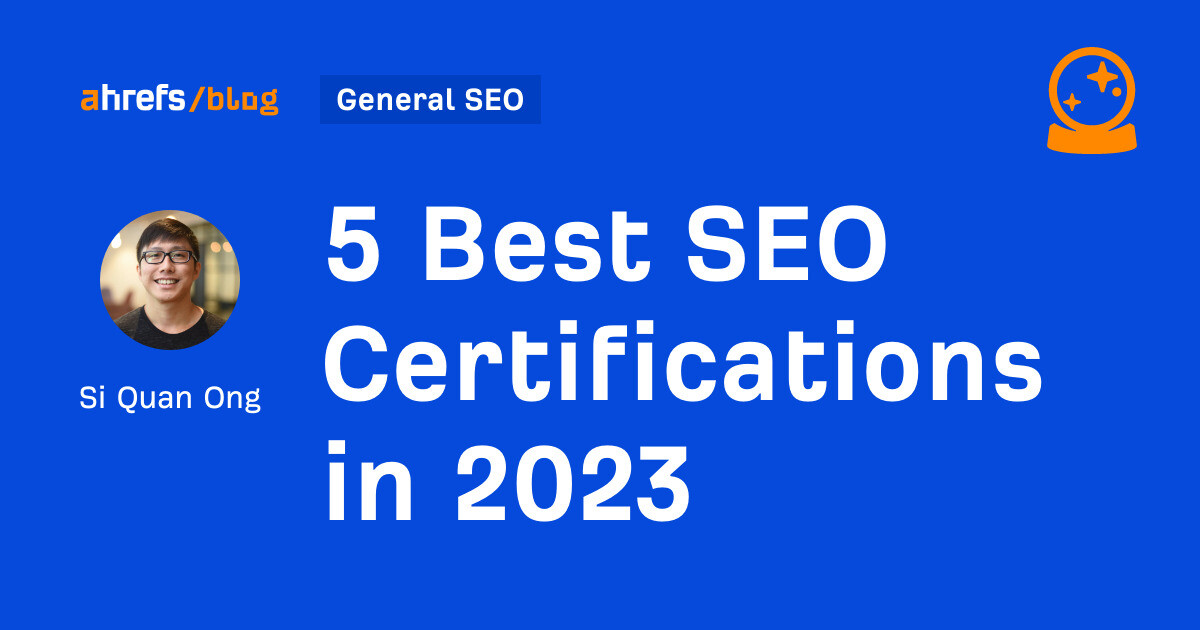
Since university degrees in SEO are rare, certifications are a popular way to prove your knowledge or expertise in SEO. However, the problem is that such certifications can be provided by anyone.
So if you want to take an SEO certification, you want to make sure you’re completing those where:
- The course material is comprehensive, accurate, and actually teaches you the basics of SEO.
- They’re well regarded in the industry.
To find courses that fit the bill, we polled our 200K+ newsletter subscribers on the best SEO certifications they would recommend.
Here are the five that our subscribers gave the most votes:
1. Ahrefs Certification Course
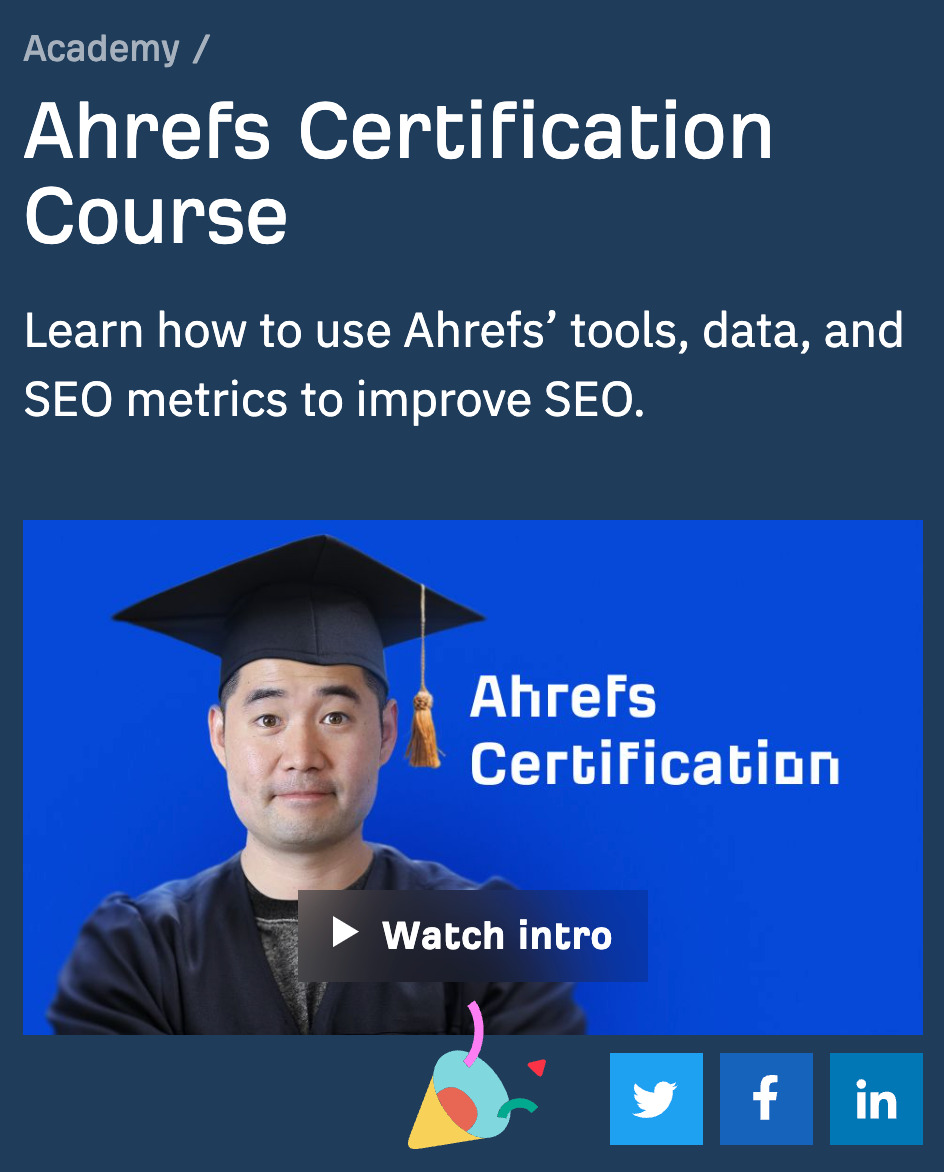
Duration: 7 hours 4 minutes
Price: Free with an Ahrefs Webmaster Tools account
Instructor(s): Sam Oh
Level: All levels
This is our own certification course that teaches how Ahrefs’ tools and data work. It’s split into modules representing each of our tools.
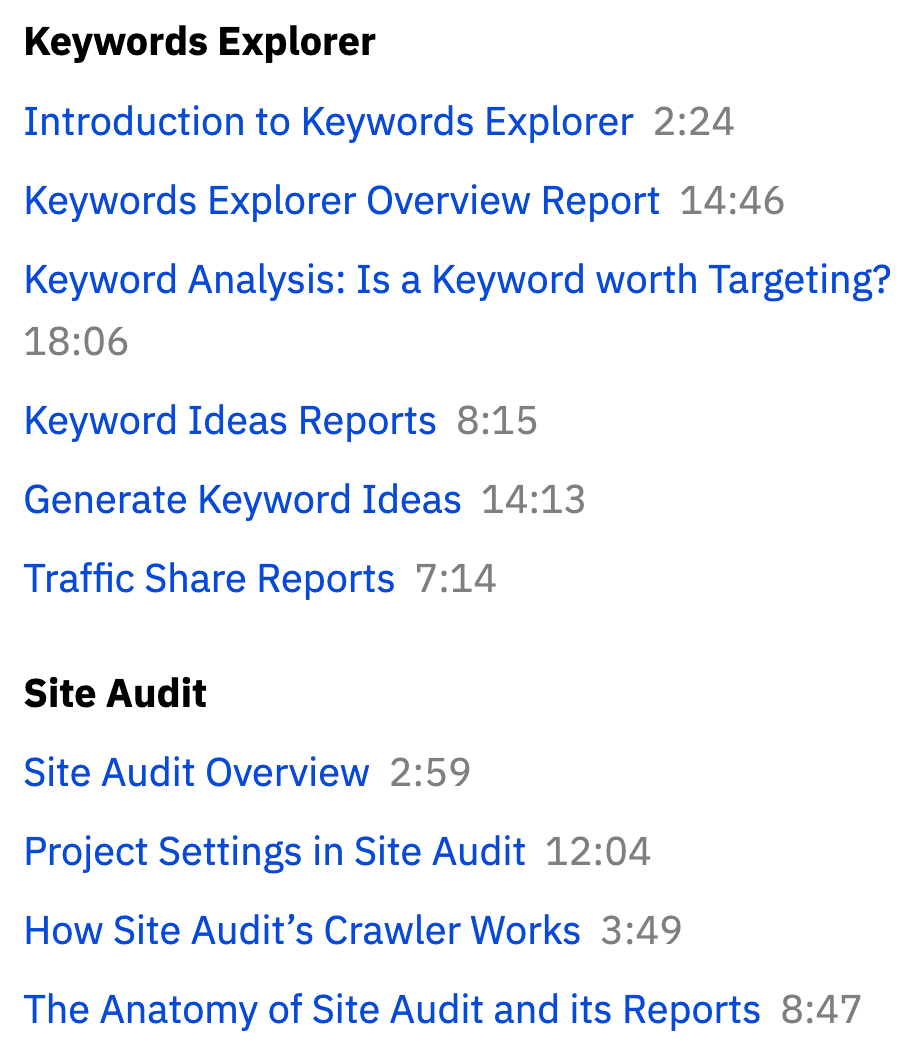
Our certification course is currently in beta. So you won’t be able to take an exam and acquire a certificate (for now). Don’t worry, though; we plan to add the certificate in the near future.
2. Google SEO Fundamentals by UC Davis
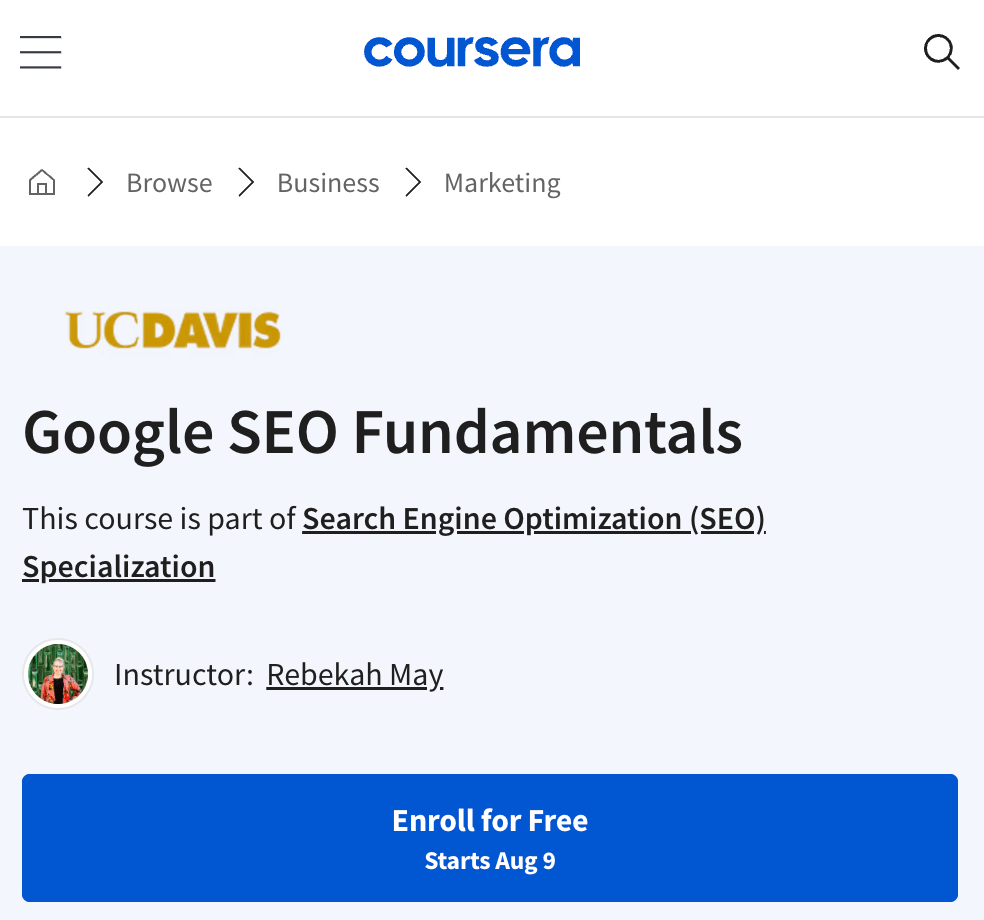
Duration: 29 hours
Price: Free
Instructor(s): Rebekah May
Level: Beginner SEOs
Created by the University of California, Davis, and powered by Coursera, this course teaches the fundamentals of SEO. There are four modules in this course and four assessments to complete. Once you’ve passed, you can earn a career certificate that you can add to your LinkedIn profile, resume, or CV. For example, here’s one given to my colleague, Joshua Hardwick:
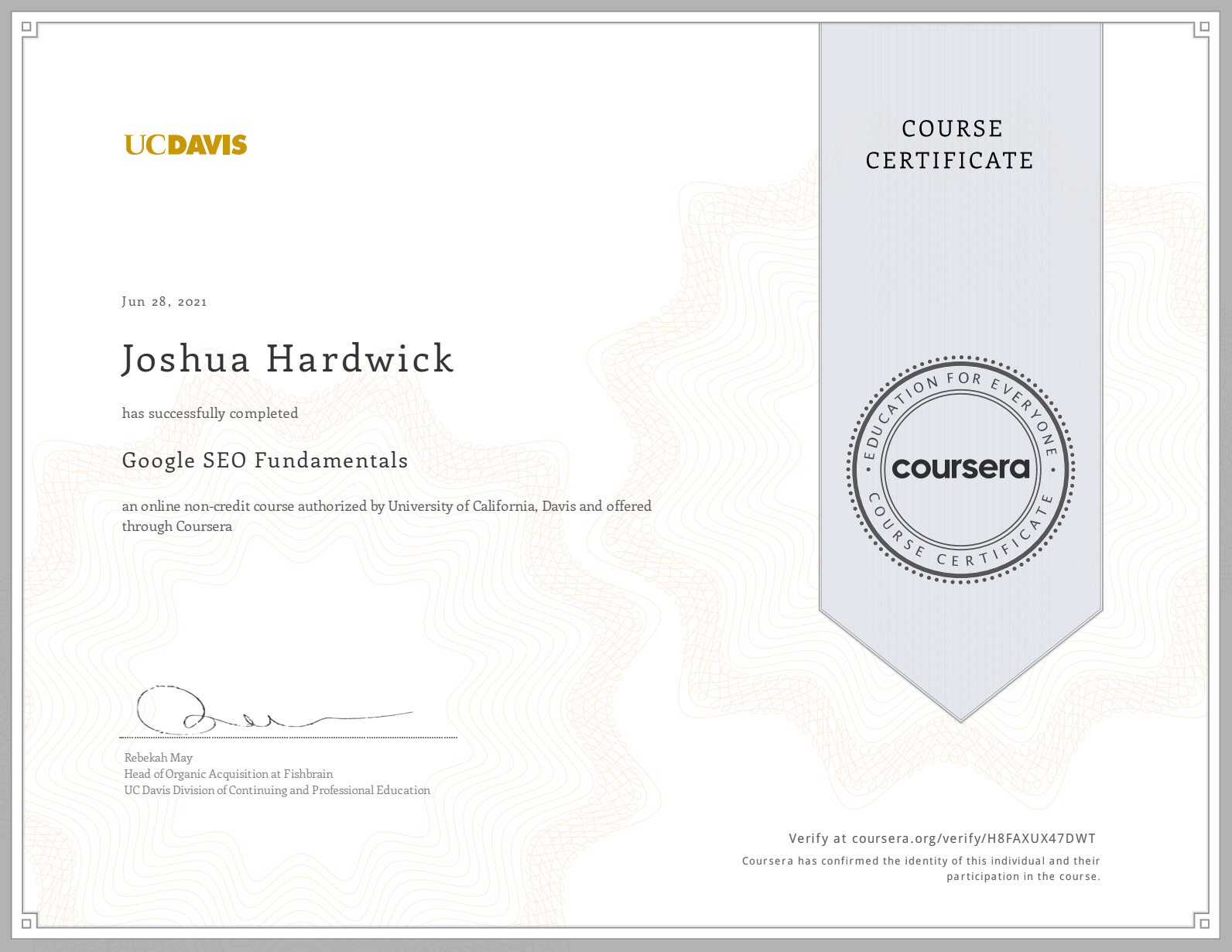
While the course is well regarded and prestigious, it comes at a huge time cost of 29 hours. You could build and potentially rank a website in that amount of time. It might be better to consider the other certifications on this list.
Many SEOs used to mistakenly claim that they were “Google certified” after completing this course. This was likely because Google used to recommend it, even as late as July 2023:
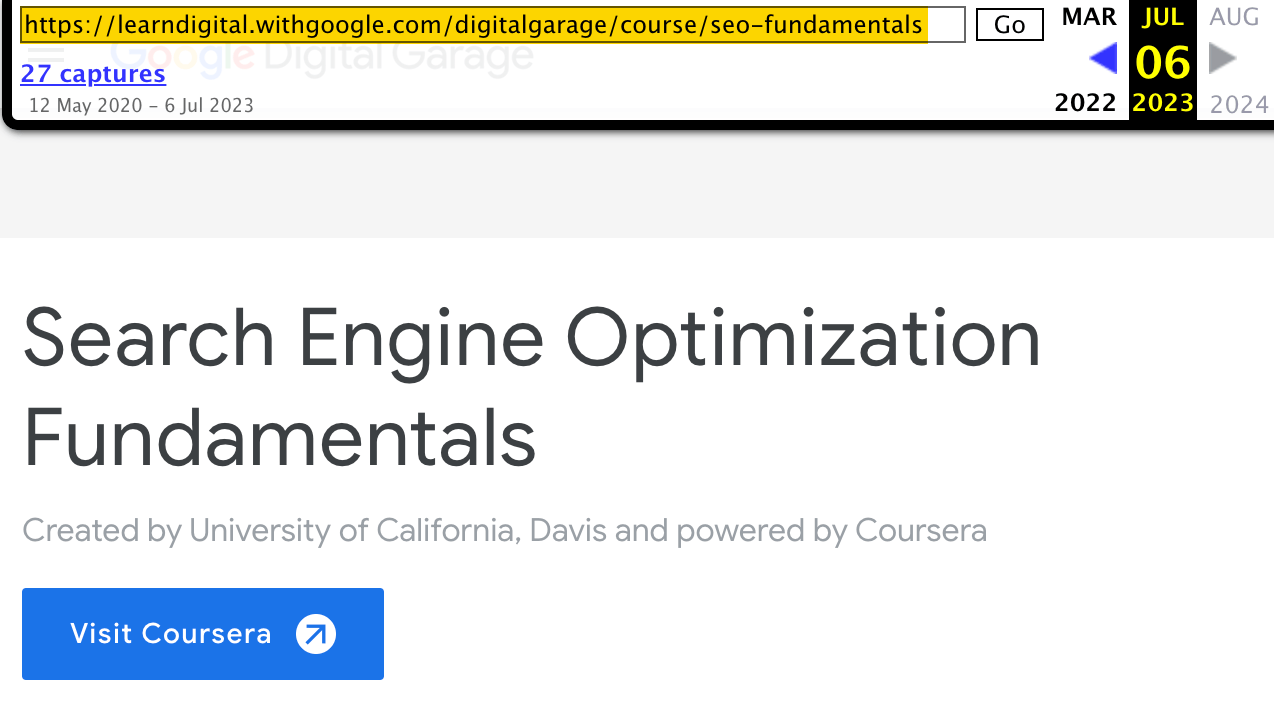
However, Google has since redirected this page somewhere else and, as a result, stopped recommending this course.
3. SEO Certification Course by HubSpot
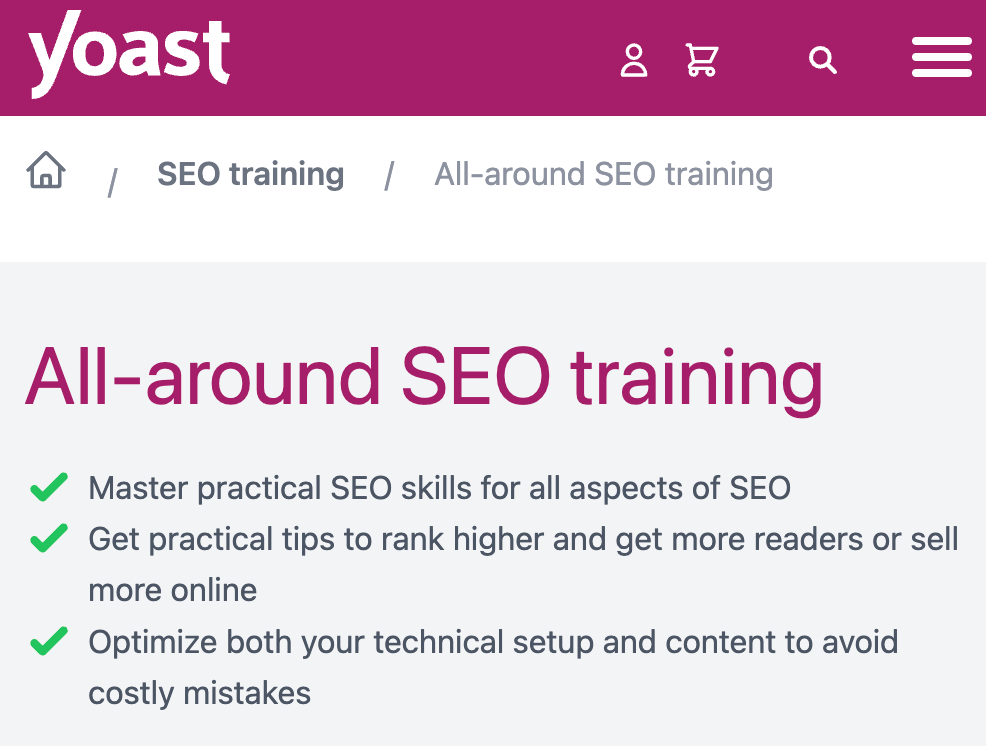
Duration: 3 hours 51 minutes
Price: Free
Instructor(s): Rachel Sheldon, Matthew Howells-Barby
Level: Beginner SEOs
This SEO certification course is part of HubSpot, a SaaS company known for inbound marketing (the founders even wrote a book about it).
With six lessons and 26 videos, the course runs at close to four hours. There are also five quizzes to complete, after which you can gain a certificate. For example, my colleague, Joshua, took this certification and obtained this certificate:
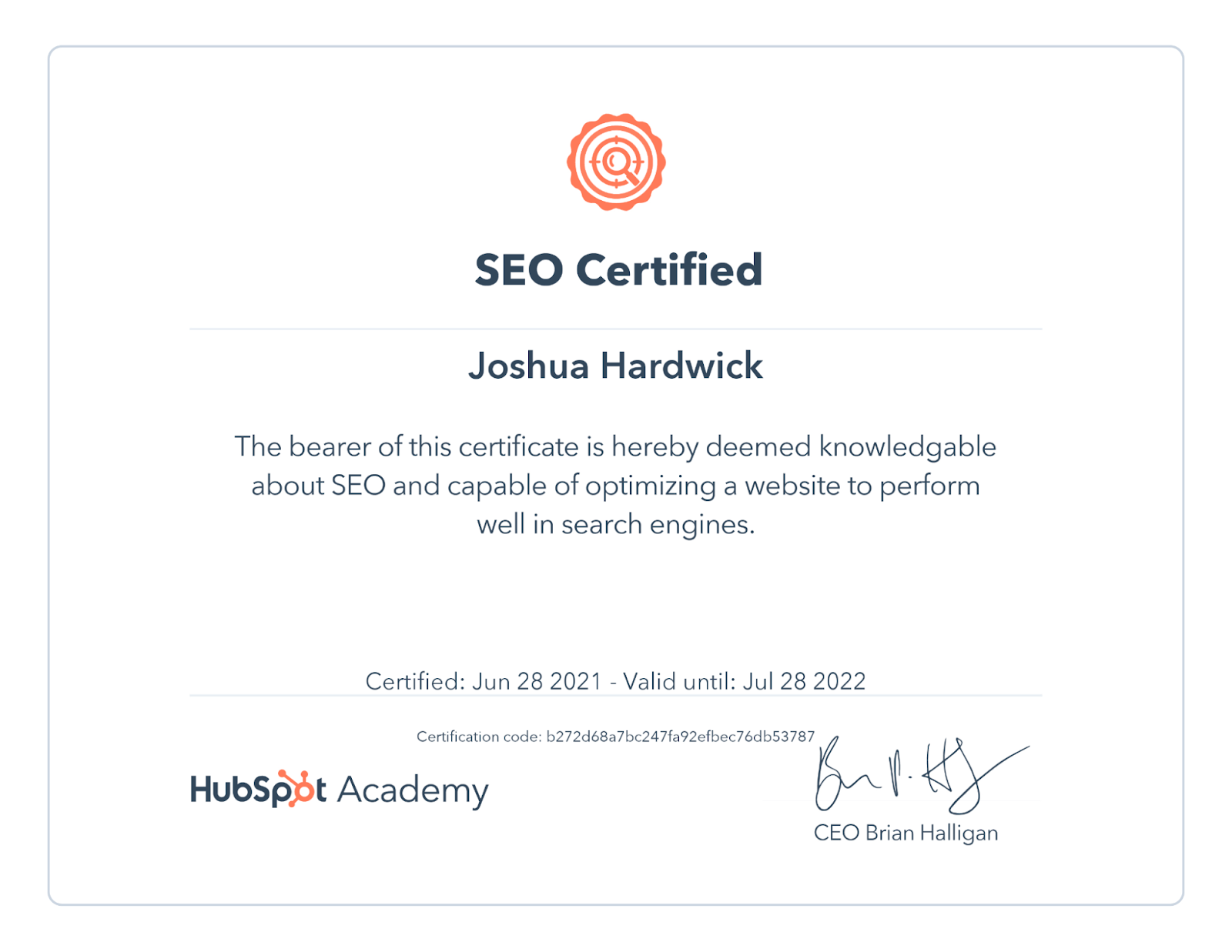
The course is free, but you’ll have to sign up for a HubSpot Academy account.
4. All-Around SEO Training by Yoast

Duration: 3 hours
Price: $99/year
Instructor(s): Joost de Valk
Level: Beginner and intermediate SEOs
This is the first paid SEO certification on this list. It costs $99 per year, and you get a certificate, badge, and access to the course for one year. (You can share this on LinkedIn, your resume, CV, etc.). You also get access to all other Yoast academy courses and Yoast’s premium plugin.
Considering that Yoast is probably the most used SEO plugin, this may actually sound like a steal.
If you’re unsure about dropping that amount of money on an SEO course, Yoast also offers a free sample lesson for you to try:
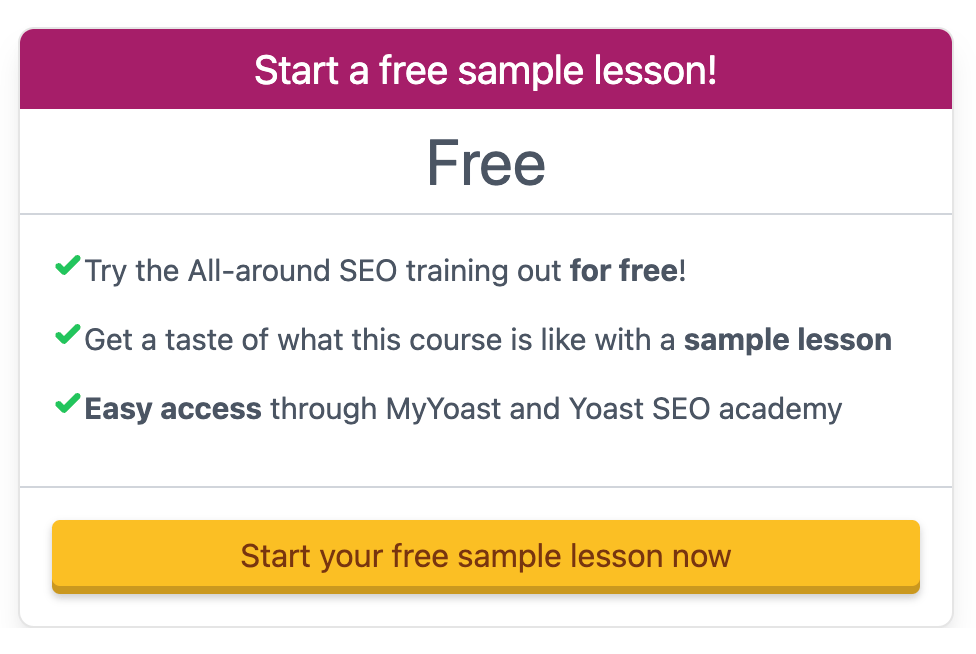
5. SEO Foundations on LinkedIn
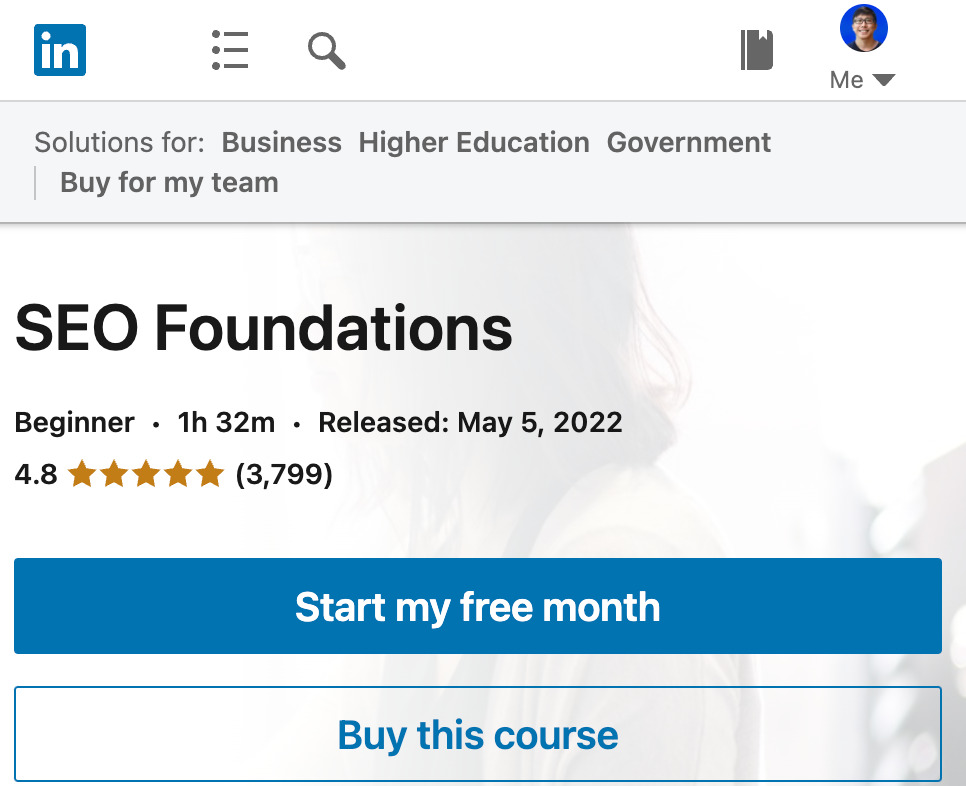
Duration: 1 hour 32 minutes
Price: ~$40
Instructor(s): David Booth
Level: Beginner SEOs
Part of LinkedIn Learning, this course has five modules and five chapter quizzes to assess your knowledge. Passing the course means acquiring a LinkedIn Learning Certificate of Completion, which you can easily add to your LinkedIn profile.
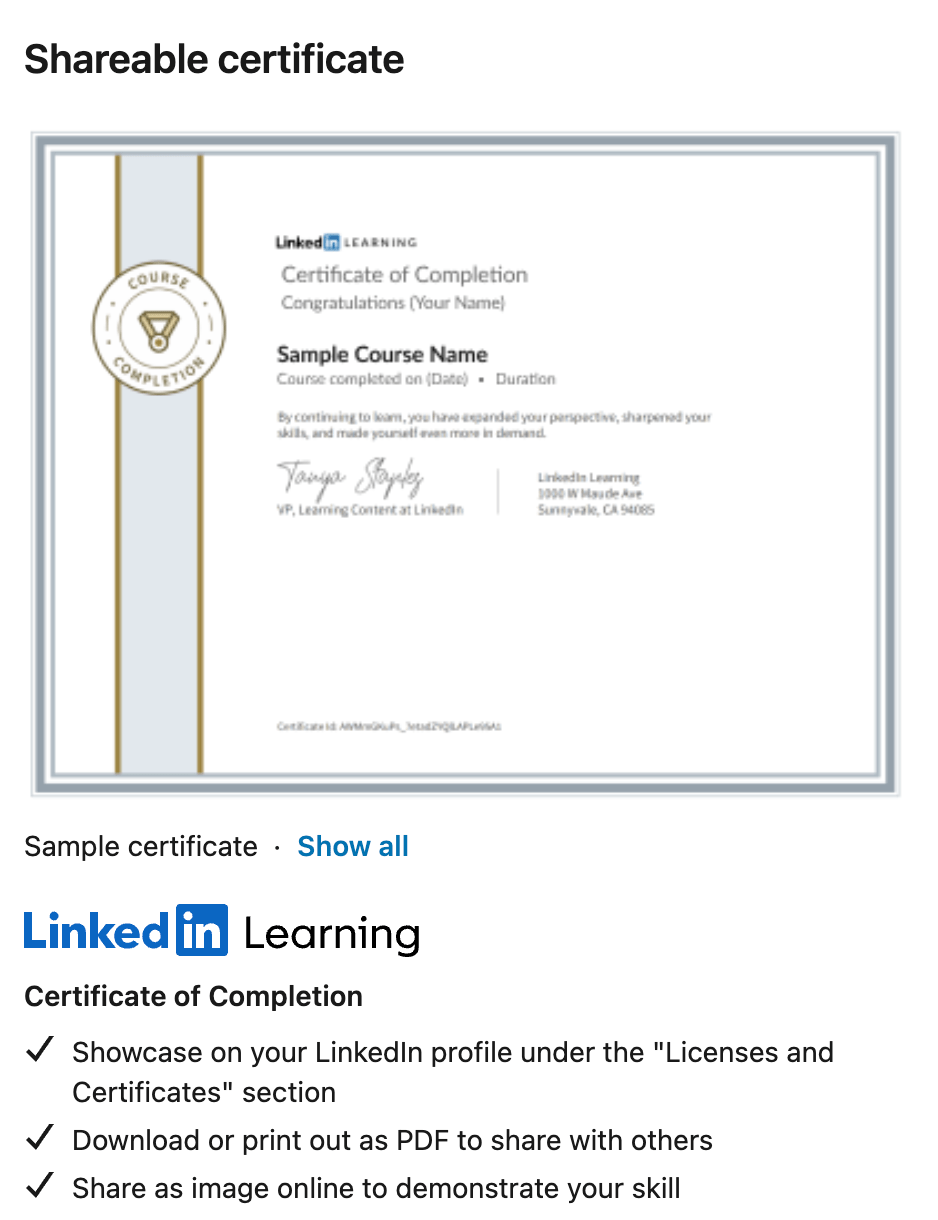
Unfortunately, this is a paid course—but it’s relatively affordable. You can even start a one-month free trial on LinkedIn Learning and complete the course within that period.
Let’s be straight:
Most SEO certifications aren’t worth it.
Here are a few reasons why.
1. Most employers don’t care about SEO certifications
We asked 15 SEO hiring managers for the skills and requirements that they deem important when hiring an SEO specialist. In all, 86% said that SEO certifications aren’t important, with the rest saying that they’re only somewhat important.
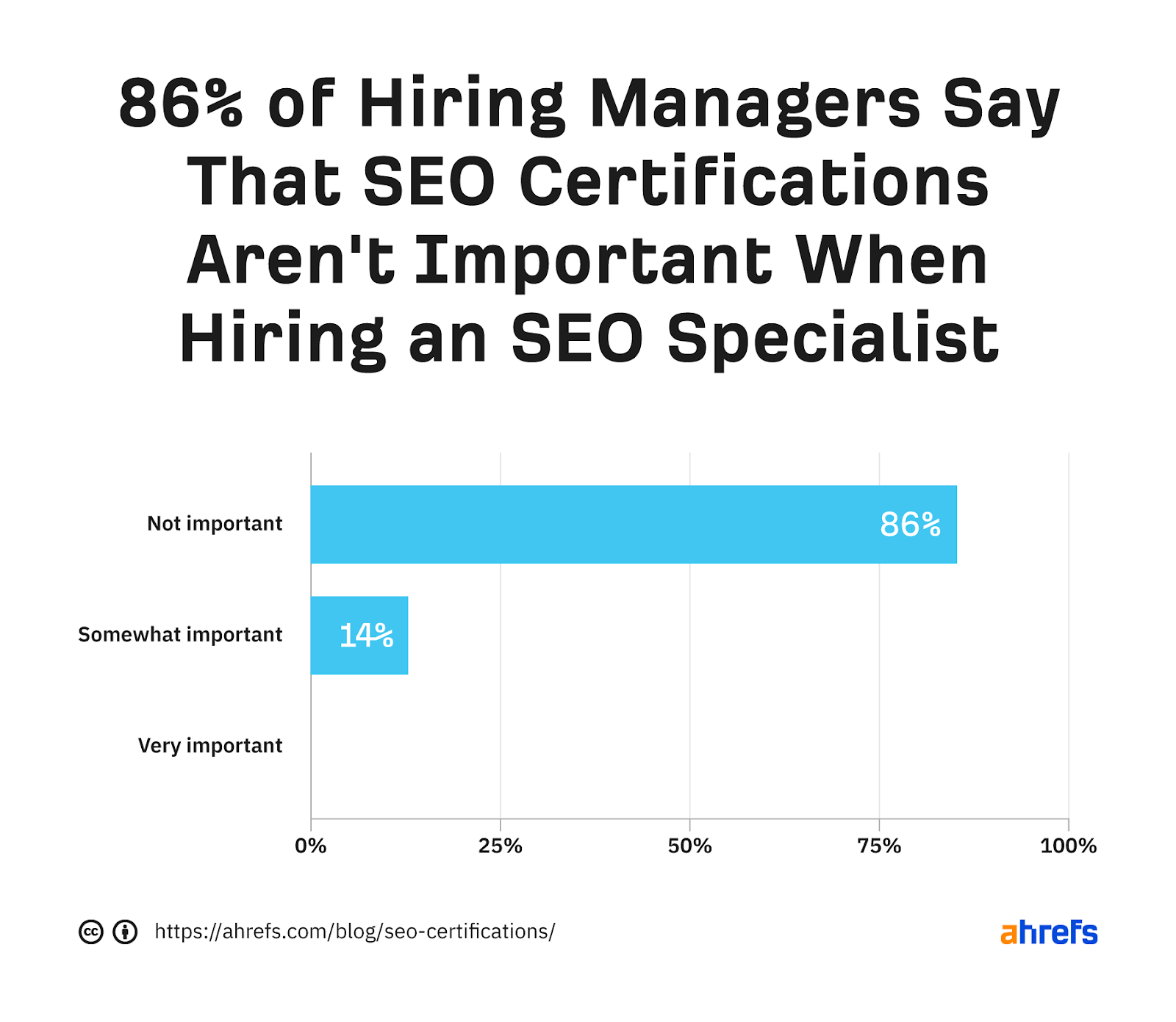
Not one hiring manager said they were very important.
So if you want an SEO certification to add to your resume and LinkedIn to attract job offers, I have bad news.
2. SEO certifications don’t guarantee a good SEO education
Getting an SEO certificate doesn’t necessarily mean that you learned anything useful. It just means that you learned something.
So don’t let the allure of a certificate cloud your judgment when learning SEO. If the syllabus doesn’t look helpful, don’t bother.
3. SEO certifications only teach you theory, not practical skills
Knowing the theory only gets you so far.
If you want to become an SEO expert, our advice is to start a website as soon as possible after learning the basics of SEO. Getting your hands dirty and trying to rank a website will teach you more than an SEO certification.
4. SEO certifications take a lot of time
There are 13 hours of material in Google’s SEO Fundamentals certification.
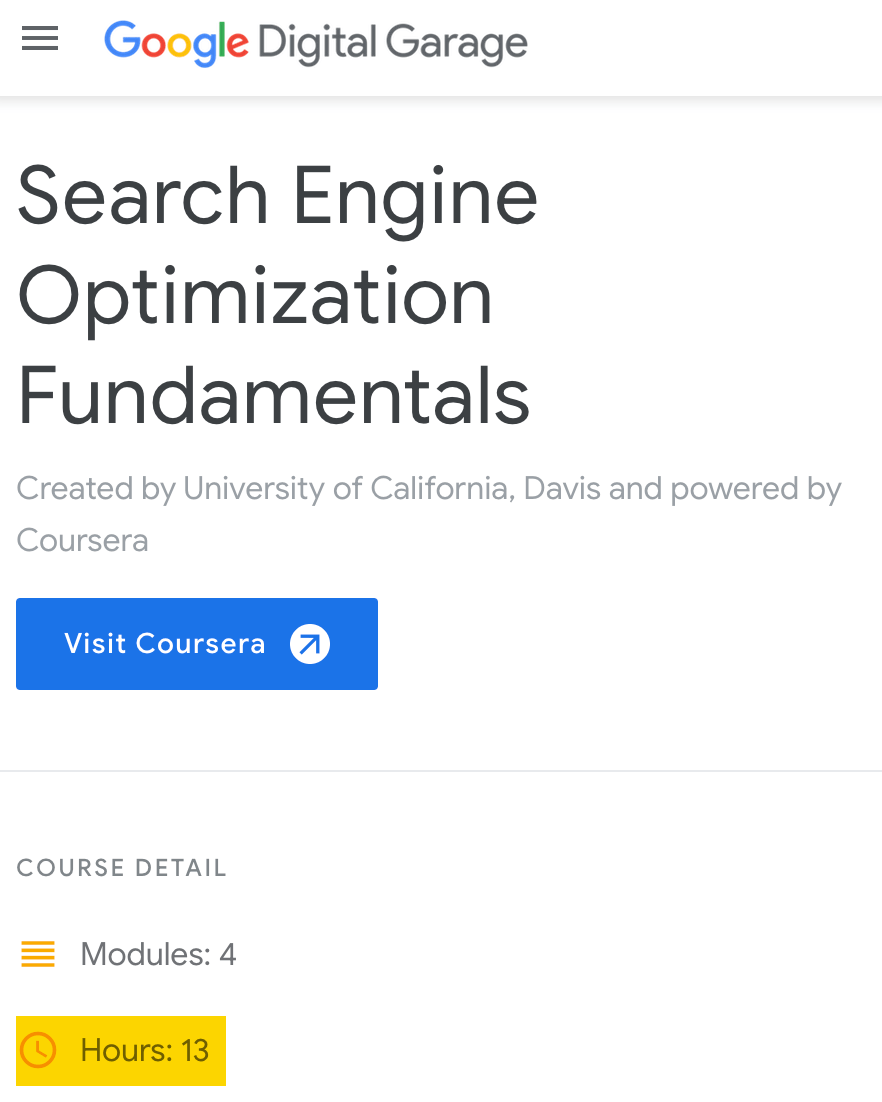
That’s not a negligible amount of time. You could spend that time building and ranking a website. And it’s probably a better use of your time if you already know the basics of SEO.
5. SEO certifications often have bad questions
Look at this question from an SEO exam:
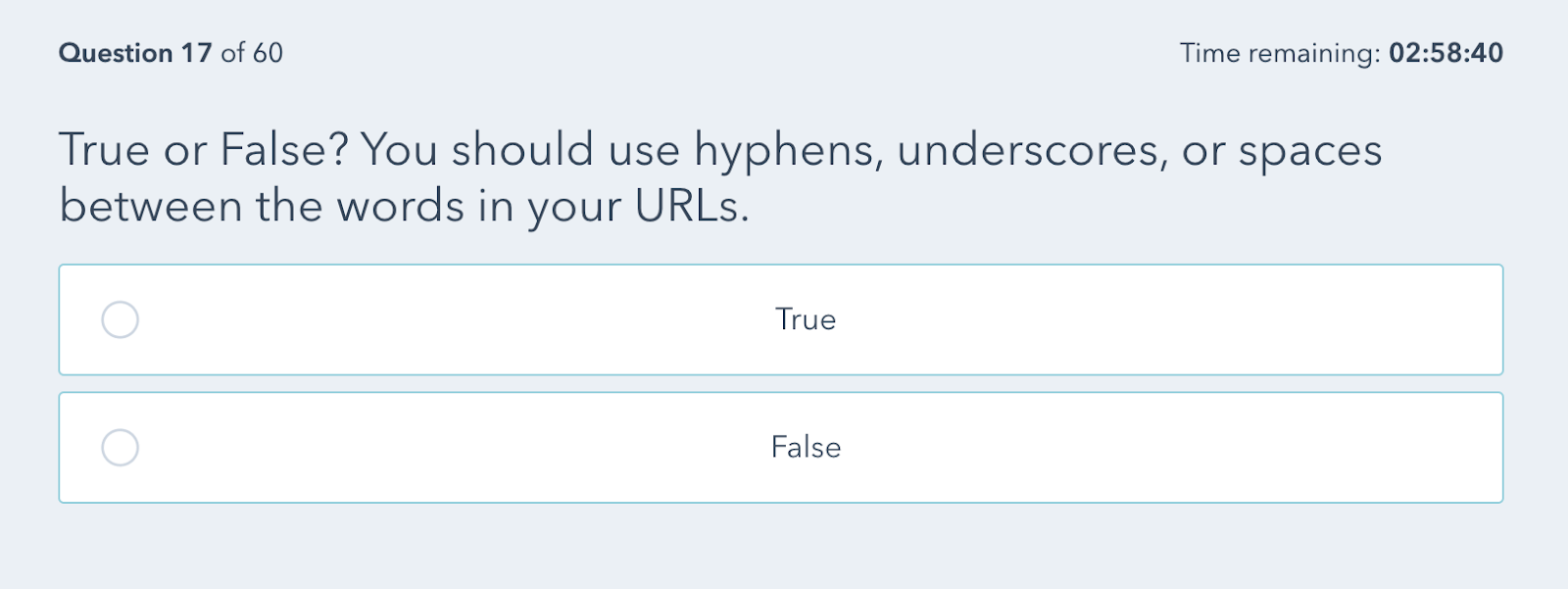
Google actually recommends you use hyphens rather than underscores in URLs. So it’s not a true or false question.
Here’s another question, this time from Google’s SEO Fundamentals certification:
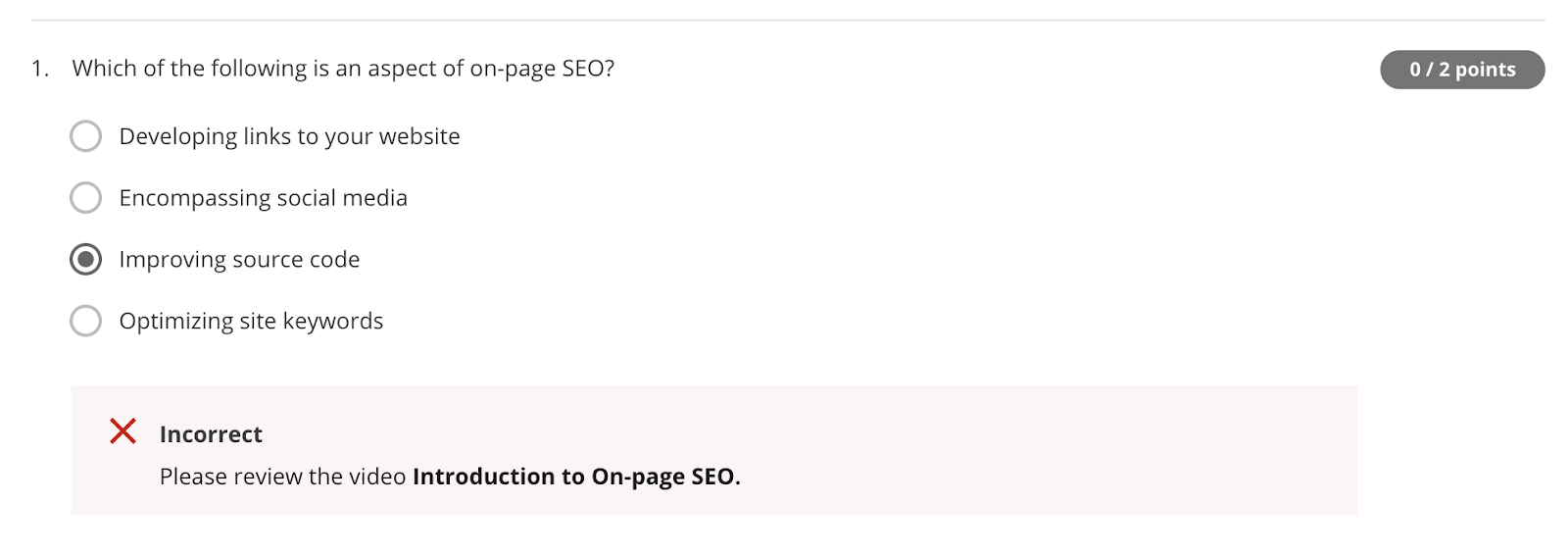
You can see we got the answer wrong. If we must guess, the correct answer is likely “optimizing site keywords.” But that’s a terrible answer—it sounds like something you’d see in 2009, not now.
If you are a hiring manager and see such questions in the quiz, will you trust the certification? And by extension, will you trust the knowledge of the person with such certifications?
Probably not.
6. SEO certifications are too easy to pass
For most certifications, if you failed the exam, you could retake it shortly after your initial attempt (between 0 and 12 hours).
This sounds great if you’re a “test taker.” But since most questions are multiple-choice, it’s only a matter of time before you pass the exam via trial and error or Googling.
This diminishes the value of your certification. Imagine if it was this easy for college exams. The job market would soon become saturated with graduates, and degrees would lose much of their value.
7. SEO certifications are often just marketing ploys
Passing an SEO certification gets you a certificate (and sometimes a badge too). You can show this off on your resume, LinkedIn profile, or website. That raises brand awareness for the creator of the SEO certification.
This is probably why many of them are easy to pass. Passes lead to brand awareness.
Here are some commonly asked questions about SEO certifications.
What is an SEO certification?
An SEO certification is awarded to a person who passes an assessment after completing an SEO course.
The proof of achievement, either in the form of a certificate or badge, is what differentiates an SEO certification from an SEO course.
Is there a Google SEO certification?
Kind of.
Google offers a free “Fundamentals of Digital Marketing” certification through the Google Digital Garage. It includes 26 modules, ~14 hours of material, and covers many aspects of digital marketing—with three of them solely dedicated to SEO. It’s accredited by the Interactive Advertising Bureau Europe and The Open University.
If you’re looking to learn Google Analytics, there’s also the Google Analytics Certification.
Should you pay for an SEO certification?
Judge the course by its material, not by the certification. If the course contains material you didn’t know before or can likely teach you new skills, then it’s worth paying for.
Final thoughts
Most SEO hiring managers see certifications as unimportant when hiring SEO specialists. We agree.
So here’s our advice:
If you want to grow your SEO knowledge, find a good SEO course (here’s our free one) and then execute what you learn.
If you want to get a job, do the same thing because results speak louder than an “SEO certification.”
Any questions or comments? Let me know on Twitter (X) or Threads.
SEO
Google Cautions On Blocking GoogleOther Bot

Google’s Gary Illyes answered a question about the non-search features that the GoogleOther crawler supports, then added a caution about the consequences of blocking GoogleOther.
What Is GoogleOther?
GoogleOther is a generic crawler created by Google for the various purposes that fall outside of those of bots that specialize for Search, Ads, Video, Images, News, Desktop and Mobile. It can be used by internal teams at Google for research and development in relation to various products.
The official description of GoogleOther is:
“GoogleOther is the generic crawler that may be used by various product teams for fetching publicly accessible content from sites. For example, it may be used for one-off crawls for internal research and development.”
Something that may be surprising is that there are actually three kinds of GoogleOther crawlers.
Three Kinds Of GoogleOther Crawlers
- GoogleOther
Generic crawler for public URLs - GoogleOther-Image
Optimized to crawl public image URLs - GoogleOther-Video
Optimized to crawl public video URLs
All three GoogleOther crawlers can be used for research and development purposes. That’s just one purpose that Google publicly acknowledges that all three versions of GoogleOther could be used for.
What Non-Search Features Does GoogleOther Support?
Google doesn’t say what specific non-search features GoogleOther supports, probably because it doesn’t really “support” a specific feature. It exists for research and development crawling which could be in support of a new product or an improvement in a current product, it’s a highly open and generic purpose.
This is the question asked that Gary narrated:
“What non-search features does GoogleOther crawling support?”
Gary Illyes answered:
“This is a very topical question, and I think it is a very good question. Besides what’s in the public I don’t have more to share.
GoogleOther is the generic crawler that may be used by various product teams for fetching publicly accessible content from sites. For example, it may be used for one-off crawls for internal research and development.
Historically Googlebot was used for this, but that kind of makes things murky and less transparent, so we launched GoogleOther so you have better controls over what your site is crawled for.
That said GoogleOther is not tied to a single product, so opting out of GoogleOther crawling might affect a wide range of things across the Google universe; alas, not Search, search is only Googlebot.”
It Might Affect A Wide Range Of Things
Gary is clear that blocking GoogleOther wouldn’t have an affect on Google Search because Googlebot is the crawler used for indexing content. So if blocking any of the three versions of GoogleOther is something a site owner wants to do, then it should be okay to do that without a negative effect on search rankings.
But Gary also cautioned about the outcome that blocking GoogleOther, saying that it would have an effect on other products and services across Google. He didn’t state which other products it could affect nor did he elaborate on the pros or cons of blocking GoogleOther.
Pros And Cons Of Blocking GoogleOther
Whether or not to block GoogleOther doesn’t necessarily have a straightforward answer. There are several considerations to whether doing that makes sense.
Pros
Inclusion in research for a future Google product that’s related to search (maps, shopping, images, a new feature in search) could be useful. It might be helpful to have a site included in that kind of research because it might be used for testing something good for a site and be one of the few sites chosen to test a feature that could increase earnings for a site.
Another consideration is that blocking GoogleOther to save on server resources is not necessarily a valid reason because GoogleOther doesn’t seem to crawl so often that it makes a noticeable impact.
If blocking Google from using site content for AI is a concern then blocking GoogleOther will have no impact on that at all. GoogleOther has nothing to do with crawling for Google Gemini apps or Vertex AI, including any future products that will be used for training associated language models. The bot for that specific use case is Google-Extended.
Cons
On the other hand it might not be helpful to allow GoogleOther if it’s being used to test something related to fighting spam and there’s something the site has to hide.
It’s possible that a site owner might not want to participate if GoogleOther comes crawling for market research or for training machine learning models (for internal purposes) that are unrelated to public-facing products like Gemini and Vertex.
Allowing GoogleOther to crawl a site for unknown purposes is like giving Google a blank check to use your site data in any way they see fit outside of training public-facing LLMs or purposes related to named bots like GoogleBot.
Takeaway
Should you block GoogleOther? It’s a coin toss. There are possible potential benefits but in general there isn’t enough information to make an informed decision.
Listen to the Google SEO Office Hours podcast at the 1:30 minute mark:
Featured Image by Shutterstock/Cast Of Thousands
SEO
AI Search Boosts User Satisfaction

A new study finds that despite concerns about AI in online services, users are more satisfied with search engines and social media platforms than before.
The American Customer Satisfaction Index (ACSI) conducted its annual survey of search and social media users, finding that satisfaction has either held steady or improved.
This comes at a time when major tech companies are heavily investing in AI to enhance their services.
Search Engine Satisfaction Holds Strong
Google, Bing, and other search engines have rapidly integrated AI features into their platforms over the past year. While critics have raised concerns about potential negative impacts, the ACSI study suggests users are responding positively.
Google maintains its position as the most satisfying search engine with an ACSI score of 81, up 1% from last year. Users particularly appreciate its AI-powered features.
Interestingly, Bing and Yahoo! have seen notable improvements in user satisfaction, notching 3% gains to reach scores of 77 and 76, respectively. These are their highest ACSI scores in over a decade, likely due to their AI enhancements launched in 2023.
The study hints at the potential of new AI-enabled search functionality to drive further improvements in the customer experience. Bing has seen its market share improve by small but notable margins, rising from 6.35% in the first quarter of 2023 to 7.87% in Q1 2024.
Customer Experience Improvements
The ACSI study shows improvements across nearly all benchmarks of the customer experience for search engines. Notable areas of improvement include:
- Ease of navigation
- Ease of using the site on different devices
- Loading speed performance and reliability
- Variety of services and information
- Freshness of content
These improvements suggest that AI enhancements positively impact various aspects of the search experience.
Social Media Sees Modest Gains
For the third year in a row, user satisfaction with social media platforms is on the rise, increasing 1% to an ACSI score of 74.
TikTok has emerged as the new industry leader among major sites, edging past YouTube with a score of 78. This underscores the platform’s effective use of AI-driven content recommendations.
Meta’s Facebook and Instagram have also seen significant improvements in user satisfaction, showing 3-point gains. While Facebook remains near the bottom of the industry at 69, Instagram’s score of 76 puts it within striking distance of the leaders.
Challenges Remain
Despite improvements, the study highlights ongoing privacy and advertising challenges for search engines and social media platforms. Privacy ratings for search engines remain relatively low but steady at 79, while social media platforms score even lower at 73.
Advertising experiences emerge as a key differentiator between higher- and lower-satisfaction brands, particularly in social media. New ACSI benchmarks reveal user concerns about advertising content’s trustworthiness and personal relevance.
Why This Matters For SEO Professionals
This study provides an independent perspective on how users are responding to the AI push in online services. For SEO professionals, these findings suggest that:
- AI-enhanced search features resonate with users, potentially changing search behavior and expectations.
- The improving satisfaction with alternative search engines like Bing may lead to a more diverse search landscape.
- The continued importance of factors like content freshness and site performance in user satisfaction aligns with long-standing SEO best practices.
As AI becomes more integrated into our online experiences, SEO strategies may need to adapt to changing user preferences.
Featured Image: kate3155/Shutterstock
SEO
Google To Upgrade All Retailers To New Merchant Center By September
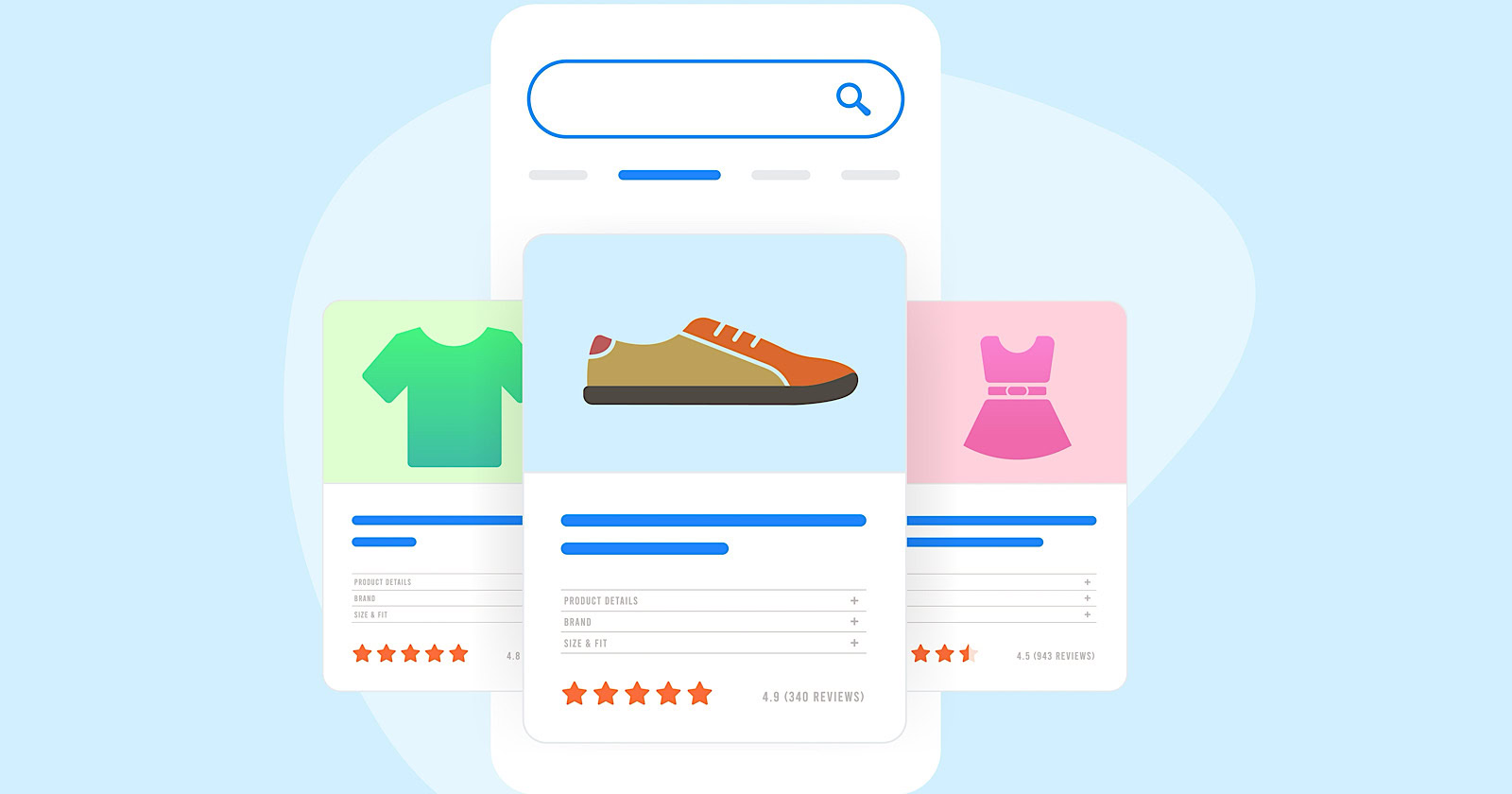
Google has announced plans to transition all retailers to its updated Merchant Center platform by September.
This move will affect e-commerce businesses globally and comes ahead of the holiday shopping season.
The Merchant Center is a tool for online retailers to manage how their products appear across Google’s shopping services.
Key Changes & Features
The new Merchant Center includes several significant updates.
Product Studio
An AI-powered tool for content creation. Google reports that 80% of current users view it as improving efficiency.
This feature allows retailers to generate tailored product assets, animate still images, and modify existing product images to match brand aesthetics.
It also simplifies tasks like background removal and image resolution enhancement.
Centralized Analytics
A new tab consolidating various business insights, including pricing data and competitive analysis tools.
Retailers can access pricing recommendations, competitive visibility reports, and retail-specific search trends, enabling them to make data-driven decisions and capitalize on popular product categories.
Redesigned Navigation
Google claims the new interface is more intuitive and cites increased setup success rates for new merchants.
The platform now offers simplified website verification processes and can pre-populate product information during setup.
Initial User Response
According to Google, early adopters have shown increased engagement with the platform.
The company reports a 25% increase in omnichannel merchants adding product offers in the new system. However, these figures have yet to be independently verified.
Jeff Harrell, Google’s Senior Director of Merchant Shopping, states in an announcement:
“We’ve seen a significant increase in retention and engagement among existing online merchants who have moved to the new Merchant Center.”
Potential Challenges and Support
While Google emphasizes the upgrade’s benefits, some retailers, particularly those comfortable with the current version, may face challenges adapting to the new system.
The upgrade’s mandatory nature could raise concerns among users who prefer the existing interface or have integrated workflows based on the current system.
To address these concerns, Google has stated that it will provide resources and support to help with the transition. This includes tutorial videos, detailed documentation, and access to customer support teams for troubleshooting.
Industry Context
This update comes as e-commerce platforms evolve, with major players like Amazon and Shopify enhancing their seller tools. Google’s move is part of broader efforts to maintain competitiveness in the e-commerce services sector.
The upgrade could impact consumers by improving product listings and providing more accurate information across Google’s shopping services.
For the e-commerce industry as a whole, it signals a continued push towards AI-driven tools and data-centric decision-making.
Transition Timeline
Google states that retailers will be automatically upgraded by September if they still need to transition.
The company advises users to familiarize themselves with the new features before the busy holiday shopping period.
Featured Image: BestForBest/Shutterstock
-
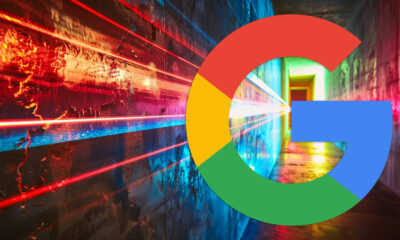
 SEARCHENGINES5 days ago
SEARCHENGINES5 days agoBillions Of Google goo.gl URLs To 404 In The Future
-
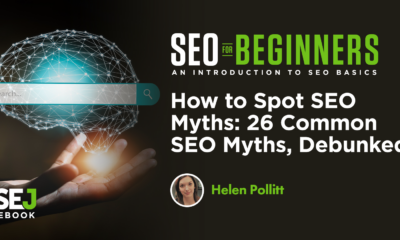
 SEO7 days ago
SEO7 days ago26 Common SEO Myths, Debunked
-
SEARCHENGINES4 days ago
Daily Search Forum Recap: July 22, 2024
-

 SEO5 days ago
SEO5 days ago11 Copyscape Alternatives To Check Plagiarism
-

 SEARCHENGINES6 days ago
SEARCHENGINES6 days agoGoogle Core Update Coming, Ranking Volatility, Bye Search Notes, AI Overviews, Ads & More
-

 SEO6 days ago
SEO6 days agoGoogle Warns Of Last Chance To Export Notes Search Data
-
SEARCHENGINES3 days ago
Daily Search Forum Recap: July 23, 2024
-

 AFFILIATE MARKETING6 days ago
AFFILIATE MARKETING6 days agoThe Top 5 AI Tools That Can Revolutionize Your Workflow and Boost Productivity















